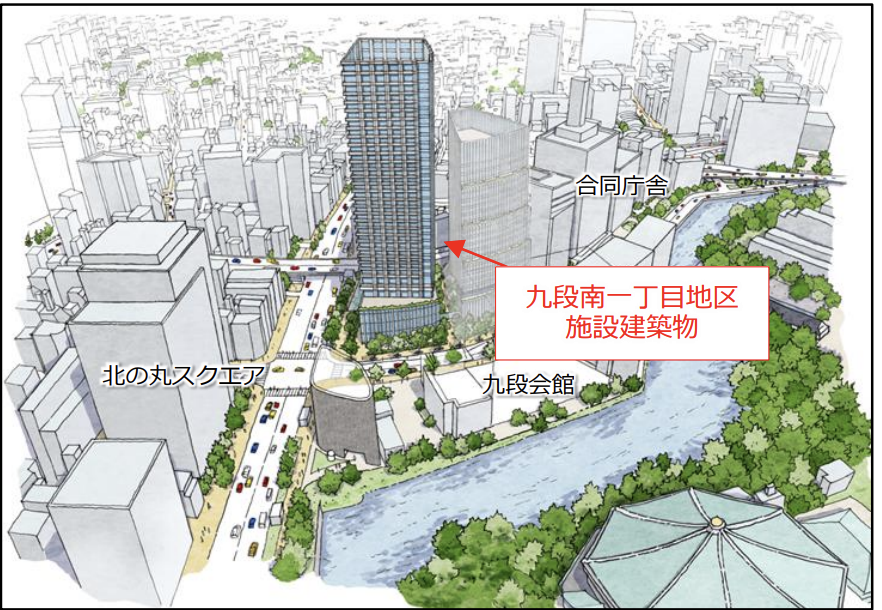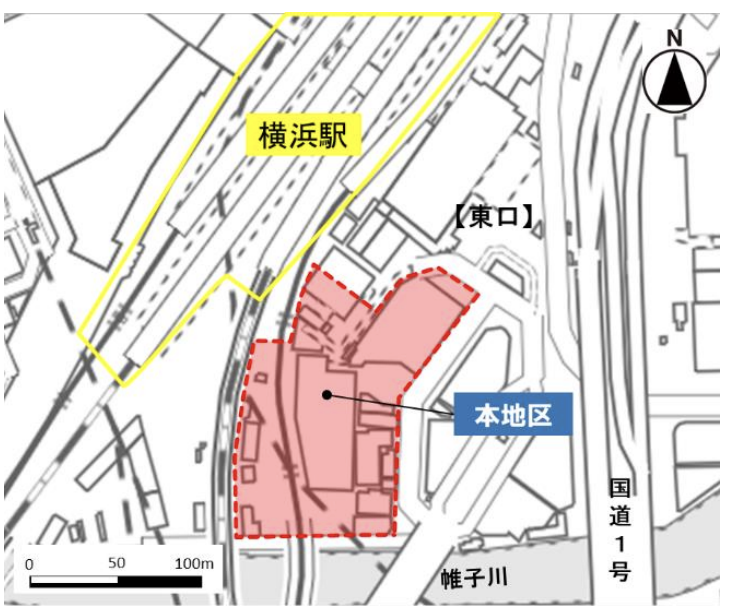Income from real estate investment can be roughly divided into two categories: "income from rent (income gain)" and "capital gain from the sale of properties (capital gain). For example, the ratio of annual rental income to property acquisition costs (surface yield) is one indicator of the earning power of an investment property. However, it is necessary to carefully assess the income and expenditure, including the real yield after deducting expenses and vacancy risk, and not to judge only by the surface yield shown in advertisements.
Initial expenses are required for real estate investment. Generally, the amount of personal funds to be prepared is "down payment for a loan plus other expenses," which should be 15-30% of the property price. For example, a 10 million yen property requires a down payment of 1.5 to 3 million yen, plus fees, registration costs, and other expenses. In most cases, the remainder is financed by a real estate investment loan. After purchasing a property, running costs such as rental management and repairs will be incurred, so it is important to estimate cash flow using an investment simulation.
General Barriers to Entry
The first barrier to real estate investment is financial. Since the price of the property itself is high, having insufficient personal funds will put you at a disadvantage when it comes to loan approval. Most financial institutions consider an annual income of 7 million yen or more as a guideline, but there are cases where loans can be obtained even with an annual income of 5 million yen through the use of financial institutions or Japan Finance Corporation. If you can provide at least 20% of the property price as personal funds, it is said to be advantageous to pass the screening process. On the other hand, financial institutions also place importance on the stability of your employer, other borrowing conditions, and whether or not you have an existing mortgage, so it is important to keep your household finances in order and your credit report in order on a regular basis.
Credit and knowledge barriers cannot be ignored. Inexperienced investors tend to leave the selection of properties and the determination of financing terms to the agents. In fact, many people feel the psychological hurdle of "real estate investment = for rich people and difficult. In reality, however, there are cases where one-room condominium investments can be started with as little as a few million yen of personal funds. By using an investment loan, you can invest while preserving the funds you have on hand, and many loans with group credit life insurance are available to hedge risks. Although there are many psychological concerns, the barriers to entry are not that high if one has the knowledge and preparation.
Another barrier to entry is the difficulty of risk management. Real estate investment involves vacancy risk, interest rate risk, and the risk of unexpected major repairs. Certainly there are also practical risks, such as age and disaster risk, although not to the same extent as with stocks or forex. To deal with these, careful property research and medium- to long-term financial planning prior to investment are essential. Beginners in particular tend to fear that they will go bankrupt if they fail, but it is important to put aside sufficient surplus funds and diversify risks by accumulating insurance and repair reserves.
Conditions that make it possible for anyone
In order to make it possible for anyone to start investing in real estate, it is important to devise financing methods and forms of operation. As mentioned above, even if you lack the personal funds, you can start investing by utilizing a loan. One way is to ask a financial institution to propose a property size that is appropriate for your own funds through their staff. In addition, government-affiliated institutions such as Japan Finance Corporation (JFC) may be able to provide loans even for those with low annual incomes. In terms of lowering the hurdle for self-financing, there are also systems such as real estate crowdfunding, in which a small amount of money is collected from a large number of investors to manage real estate. Crowdfunding allows beginners to experience low-risk investment, as they can start with as little as 10,000 yen and leave the hassle of property management to the operator.
There are also means of investing in real estate with small amounts, such as "small-lot real estate products" in which multiple people jointly invest in real estate, and REITs (real estate investment trusts). These are methods in which properties are subdivided into small units and profits are distributed without individual ownership, and many investors participate in this system. Furthermore, in actual operations, the time and technical hurdles can be reduced by outsourcing property management to a property management company. For example, by outsourcing the management of properties, it is possible to manage properties in distant locations without any burden and receive comprehensive support, including legal and taxation matters. Through these innovations, even those with limited investment experience can establish a system that allows them to manage their properties using the expertise of others.
Advice for Beginners
Gathering information is the first step in real estate investment. You can learn systematically by reading basic books, specialized websites, and investor blogs. In particular, blogs and YouTube videos written by investors themselves provide concrete examples and cautions based on their own experiences, and are said to have less biased information. In addition, participating in real estate seminars and individual consultations is also effective. By listening to the voices of real estate professionals, you can deepen your understanding of the real estate market, which you cannot obtain from the Internet or books, and you can also assess the quality of the real estate agent. Diversify your sources of information and create opportunities to receive advice directly from real estate companies specializing in the area and senior landlords.
When looking at yields (profitability), it is important to correctly understand the meaning of surface yield and real yield. Even if an advertisement shows a high surface yield, you should consider the real yield after deducting management and repair costs and the assumed risk of rent decline. As a rough guide, the general market rate in Japan is about 3-5% (minimum 3%) on the surface for condominiums, and about 6-8% for single-family apartments. Do not be misled by the yield, but get into the habit of checking the real rate of return by using the income/expense calculation formula (annual rent income - expenses) / (property price + expenses).
Area selection is also crucial. In order to secure high occupancy demand and stable income, it is desirable to have a location with convenient transportation, such as within a 10-minute walk from a station. In addition, areas with convenient facilities such as supermarkets, hospitals, etc. and good public safety will attract tenants. Looking at trends, urban areas (population of 500,000-1,000,000 or more) and suburbs of large cities with growing populations are highly popular, with Fukuoka City, Osaka City, the 23 wards of Tokyo, and Nagoya City expected to have stable real estate values. Select an area that meets your investment objectives, taking into account future demographics and redevelopment plans.
When selecting a real estate agent, the most important factors are the company's customer-oriented approach and its long-term support system. Choose a company that handles investment real estate that not only proposes properties, but also holds study sessions and individual consultations. It is recommended to attend a free seminar to confirm the personality of the person in charge and the content of the explanation, and to determine if they are trustworthy. A good company will propose properties that match the client's attributes and objectives, and will explain investment risks in detail without hiding them. Conversely, be wary of vendors who emphasize that "you will definitely make money" or salespeople who neglect to explain the risks. It is also important to confirm the extent to which the company will support your management and leasing operations after you purchase the property, as well as its after-sales support system.
Potential as a "Reproducible Business
Real estate investment can be considered a "highly reproducible business" if it is managed in a planned manner. The rental income of the property itself does not change even if the buyer changes, so similar cash flow can be expected regardless of the investor's experience or occupation if financing under the same conditions can be obtained. The appeal of real estate is that "anyone can buy the same income model," and there is a view that it is highly reproducible as an investment technique. Of course, it takes time to build a network of contacts and financing conditions, but once a stable network is established, the acquisition of new properties often accelerates.
Furthermore, to succeed as a business, investment in human capital and education are essential. Successful investors continuously update their knowledge and respond flexibly to changes in the market, laws and regulations, and the tax system. For example, it is important to actively participate in seminars with experts and take advice from senior staff members so that simply having experienced investors nearby can help avoid mistakes. In addition, in the long run, diversifying the earnings model (owning multiple properties) will help diversify risks and stabilize earnings. In short, the key to reproducibility is to view real estate investment as a "rental management business" rather than a "trading profit target," and to operate in a business-planning manner.
As described above, real estate investment is an area that anyone can enter with the proper knowledge and planning. Although there are hurdles in terms of capital and credit, even beginners can get started by taking advantage of loans, co-investment, and outsourced management. With careful evaluation of yields and location, selection of reliable vendors, and continuous learning, real estate investment can be a highly reproducible business.

Daisuke Inazawa
Representative Director of INA&Associates Inc. Based in Osaka, Tokyo, and Kanagawa, he is engaged in real estate sales, leasing, and management. He provides services based on his extensive experience in the real estate industry. Based on the philosophy that “human resources are a company's most important asset,” he places great importance on human resource development. He continues to take on the challenge of creating sustainable corporate value.

.png)













